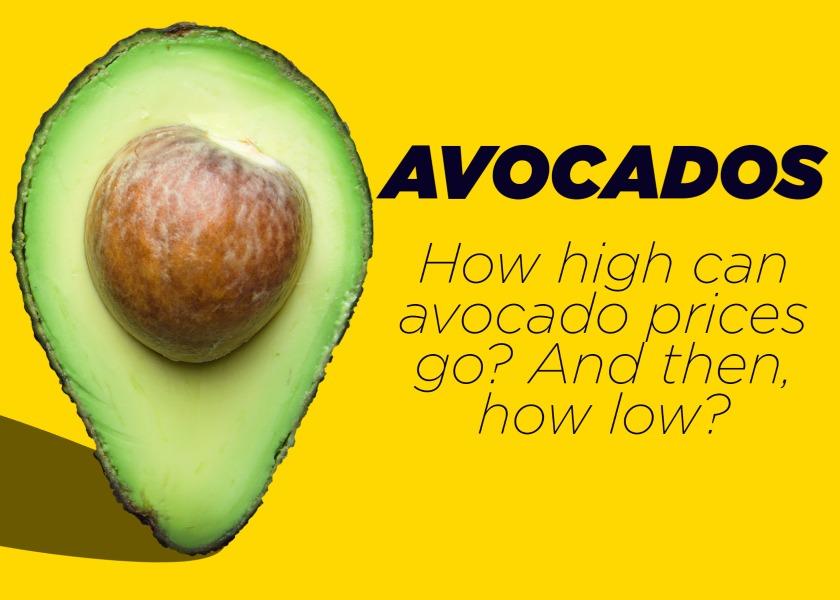How high can avocado prices go? And then, how low?

Wholesale avocado prices were already sizzling hot before the U.S. suspended Mexican hass imports Feb. 11 because of a security threat was made to a U.S. plant safety inspector in Michoacan. Now what?
A check of wholesale prices for Mexican avocados at the Boston terminal market on Feb. 15 showed that low-range prices started at $65 per carton for size 48s, up from $57 on Feb. 11 and more than double the $30 per-carton price at this time last year.
With Mexican hass supplies shut off for now and no word on what it will take to break the impasse, how high can wholesale avocado prices go? Is $100 per carton out of the question? And what about when the floodgates open and Mexican avocados rush in again; where will the market bottom out?
This scenario puts restaurant operators such as Chipotle in a precarious position. The chain told The New York Post that it has several weeks of inventory available and will “adjust its plans as needed.”
A recent report on the website Mashed.com estimated Chipotle uses about 97,000 pounds of avocados per day. That's 97,000 pounds of avocados that won’t be coming from Mexico until the USDA feels that the security threat to its staff has been eliminated. Keep in mind that Mexico was providing about 90% of total avocados available in the U.S. in late January, according to USDA shipment numbers.
The statement from the USDA, current as of the morning of Feb. 16, is:
“Working in concert with the U.S. Department of State’s Regional Security Officer, the U.S. Department of Agriculture’s Animal and Plant Health Inspection Service (APHIS) suspended avocado export program operations in the state of Michoacán, Mexico, on February 11, 2022, following a security incident (a verbal threat) involving our employees. The suspension will remain in place for as long as necessary to ensure the appropriate actions are taken, to secure the safety of APHIS personnel working in Mexico. APHIS is working with Customs and Border Protection of the U.S. Department of Homeland Security to allow avocados that were inspected and certified for export on or before February 11, 2022, to continue to be imported. Michoacán has been exporting avocados to the United States for about 25 years, and commercial shipments of Mexican fresh Hass avocados from the state have been imported since 1997. Michoacán is the only state currently approved to send avocados to the United States.”
Again, the question: How high can avocados go? And then, how low?







